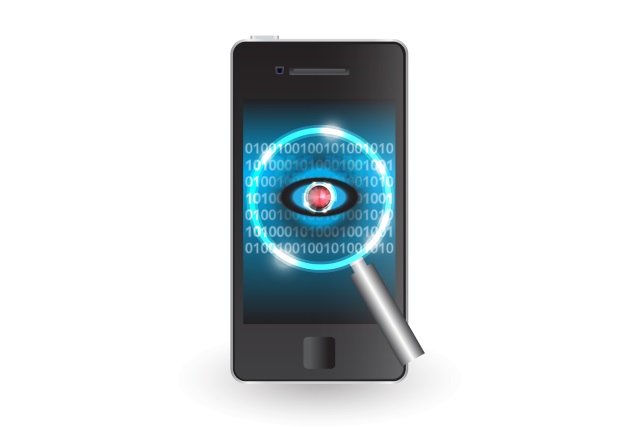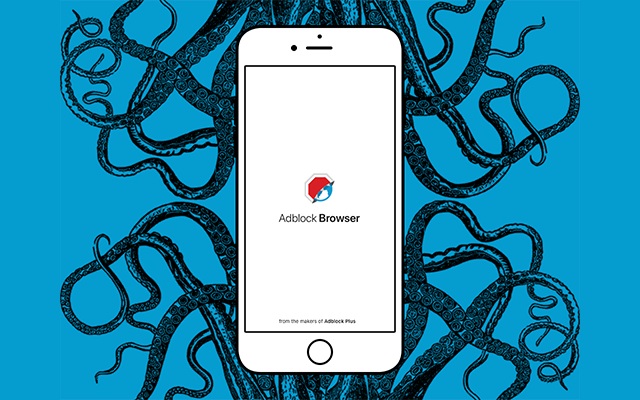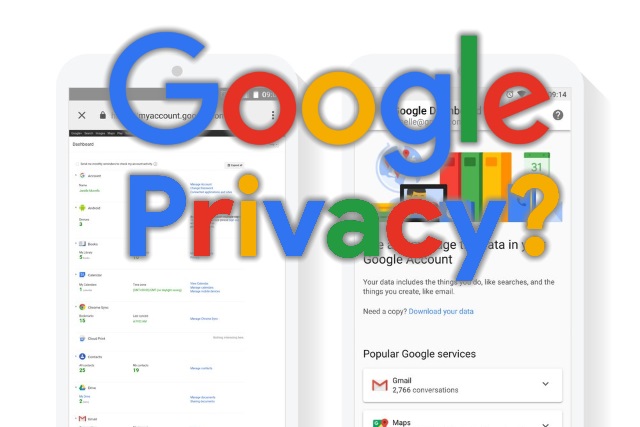
Facebook ads can target you based on your real-world store visits
That your online activities influence the ads you see on Facebook and other websites is well known. But now Facebook has developed tools that makes it possible to track your location in the real world to determine which stores you visit and then use this information to hit you with targeted ads.
The new tools work for users who allow the Facebook app to access their location. The social network and advertisers are making profitable use of this valuable information.

Security researchers warn that GO Keyboard is spying on millions of Android users
Security researchers from Adguard have issued a warning that the popular GO Keyboard app is spying on users. Produced by Chinese developers GOMO Dev Team, GO Keyboard was found to be transmitting personal information about users back to remote servers, as well as "using a prohibited technique to download dangerous executable code."
Adguard made the discovery while conducting research into the traffic consumption and unwanted behavior of various Android keyboards. The AdGuard for Android app makes it possible to see exactly what traffic an app is generating, and it showed that GO Keyboard was making worrying connections, making use of trackers, and sharing personal information.

WhatsApp refused to add a backdoor for the UK government
The UK government has made no secret of its dislike of encrypted messaging tools, and it has made frequent reference to the problems WhatsApp causes it with regard to investigations into terrorism. Calls have been made by the government to force companies to allow access to encrypted content when asked.
In the wake of Theresa May's "more needs to be done about extremist content" speech, it has emerged that WhatsApp refused to add a backdoor that would allow the government and law enforcement agencies to access private conversations.

SafeBrowse Chrome extension found to be secretly mining for cryptocurrency
Recently it was discovered that the Pirate Bay had embedded a JavaScript cryptocurrency miner into the footer of its homepage, and now a popular Chrome extension has been found engaging in similar activity.
The SafeBrowse extension purports to block popup ads and skip ad pages that appear before downloads, but in fact it was secretly running a Coin Hive mining tool in the background. With over 140,000 users, SafeBrowse -- which has now been removed from the Chrome Web Store -- was quietly making an income for its developers through clandestine use of CPU time.

iOS 11 could let you secretly record Snapchat snaps
If you're a Snapchat user, you'll know that it's possible to save someone's snaps forever by grabbing a screenshot of it. The problem is, this goes against the idea of Snapchat which is supposed to be about temporary, transient posts; that said, it's not against the rules.
One of the new features of iOS 11 is a screen recording tool that makes it possible to save a video of what's going on on-screen. This can be used to make a recording of snaps, and it seems that a warning notification is not always sent out to the other party.

GNOME partners with Purism on Librem 5 Linux-based privacy-focused smartphone
The Librem 5 smartphone by Purism has a long and difficult road ahead of it. Competing against the likes of Apple and Google on the mobile market has proven to be a death sentence for many platforms -- including Microsoft with its failed Windows 10 Mobile. With that said, I am rooting for Purism and its Pure OS, as the world would benefit from a device that uses Linux and focuses on both privacy and security. Such an alternative to iPhone and Android would be a breath of fresh air.
Luckily, Purism has found itself a new partner on this project -- one of the most important organizations in the Linux community -- The GNOME Foundation. Yes, the maker of the absolute best desktop environment is offering to assist with the Librem 5 -- if it is successfully crowdfunded, that is. To date, it is only about 33-percent funded, although there is still more than a month to go.

Privacy: With iOS 11 and Safari's cookie blocking, Apple is kicking advertisers in the teeth
Apple news has been dominated -- understandably -- by the launch of the iPhone X, iPhone 8/8Plus and Apple Watch Series 3. But there's also iOS 11 to consider. The latest version of Apple's mobile operating system hit iPhones and iPads around the world yesterday, bringing with it a raft of new features.
The release of iOS 11 includes an updated version of Safari and, importantly, a feature called Intelligent Tracking Prevention. Enabled by default, the feature blocks certain cookies from websites, making it harder for advertisers to follow users around the web. Users and privacy advocates are happy; advertisers, it must be said, are not, saying "Apple's unilateral and heavy-handed approach is bad for consumer choice and bad for the ad-supported online content and services consumers love."

Adblock Browser 2.0 for iOS adds Ghost Mode for the ultimate in anonymous private web browsing
Adblock Plus is about more than just its eponymous software -- the company also produces Adblock Browser. Now version 2.0 of the secure, private mobile web browser has been released for iOS and it introduces a wealth of new features.
Key among these new features is Ghost Mode which makes it easy to slip into anonymous web browsing mode whenever privacy is of the utmost importance. As the name of the browser implies, there is also an integrated ad-blocker, but it does not end there -- this is an update that the company has been working on for more than a year.

Kodi addons site TVAddons insists its domains are not being used to spy on users
The Kodi addons site TVAddons vanished from the internet a little while ago before reappearing with a new domain. The site faced legal action over claims it provides access to pirated content, and there have been suggestions that the original TVAddons domain is being used by a law firm to spy on users.
The team behind TVAddons insists that this is not the case, and wants to set the record straight once and for all. It says that, in fact, everything possible has been done to protect user privacy. So are tvaddons.ag and xbmchub.com being used to gather evidence about Kodi users?

It will be easy for businesses to comply with GDPR, UK's digital minister says
UK's new Data Protection Bill, aimed to "encourage innovation while protecting privacy," was published this week. Digital minister Matthew Hancock took the opportunity to call all businesses to become compliant with GDPR before the deadline of May 25, 2018.
In an opinion piece published on City AM, Hancock said the new laws are built on the existing ones and it shouldn’t be too hard for businesses to get used to them.

Privacy: Senator Al Franken has a lot of concerns about Face ID on the Apple iPhone X
From the moment Apple started to talk about Face ID, there were concerns voiced about privacy and security. It's not just security experts and potential users who have these worries; Senator Al Franken has written to Tim Cook asking for details about the safeguards Apple has put in place to protect users.
On top of this, Franken wants to know more about how Apple trained the Face ID algorithm, and seeks assurances that third parties will not be able to access or be granted access to Face ID data.

Windows 10 Fall Creators Update will give you greater control over your privacy -- but does it go far enough?
One of the biggest complaints about Windows 10 is that it spies on its users. Microsoft has reigned in this snooping in past feature updates, and is introducing yet more privacy enhancements in the forthcoming Windows 10 Fall Creators Update.
These changes, Microsoft says, will give users greater access to information, as well as more control over what data is collected in the first place. There are two main additions.

McAfee launches new range of consumer security products
With internet threats showing no signs of slowing down, it's vital to keep all of your devices protected and this applies in the home as much as the workplace.
With the launch today of its latest consumer products, McAfee is aiming to protect against threats as well as offering online privacy and safety for the whole family.

Facebook hit with €1.2 million fine for Spanish privacy violations
That Facebook is causing ripples when it comes to privacy will come as little surprise to anyone. Like Google, the social network and its users have an interesting relationship with privacy. Facebook is facing a particular problem in Europe, and the latest installment of the saga sees the company being fined €1.2 million ($1.44 million) by the Spanish data regulator AEPD.
After an investigation into Facebook, the regulator found that the company had gathered sensitive personal data without consent, and this constituted a very serious infringement of data protection laws. The investigation also identified two "serious" violations, including tracking users through the use of Like buttons embedded in non-Facebook pages.

New mobile-friendly Google Dashboard simplifies privacy settings
Google and privacy are not really happy bedfellows, but the company likes to at least give the impression that its users have a semblance of control over what the company does with their data. To this end, the new Google Dashboard aims to simplify the act of taking control of your data.
At least that's the idea. In Google's own words, "Data helps improve our products, keep them safe, and -- with your permission -- tailor them to match your interests." Data is Google's business. It's not in the company's interest for you to have too much control over your privacy settings.
